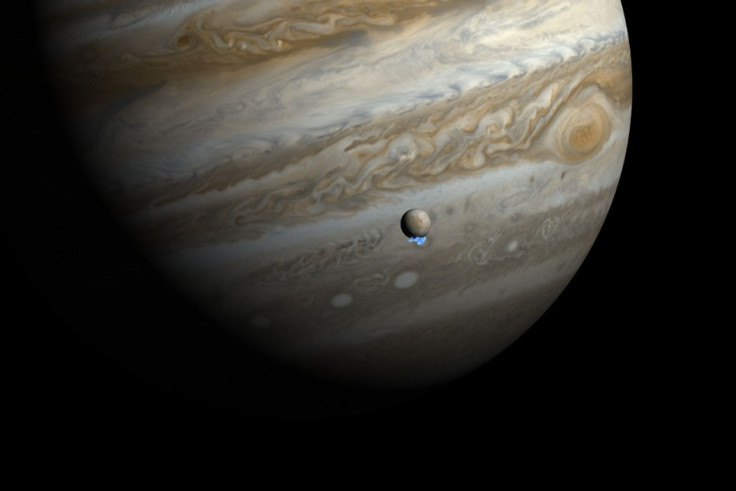NASA Planning First Ever Mission to Search for Life on Jupiter's Moon Europa

NASA is planning a robotic mission to Jupiter's moon Europa, which the scientists say is the most interesting planet in the solar system, as it has huge amount of water, more than any other planet apart from Earth.
Europa is covered with layers of ice, and is known to have vast oceans that will be explored for conditions suitable to life in the proposed NASA probe.
In December 2012, water geysers were spotted by Hubble telescope near Europa's south pole, throwing out plumes as high as 200 km into the air, to heights twice as high as Earth's atmosphere.
In an interview to Universe Today, Professor Mike Brown from California Institute of Technology said that if a probe for life in solar system is to be carried out, then it should better be on Europa, not on Mars.
NASA had been mulling over sending a mission to Europa for the last several years, even though, it was short of funding. However, in spite of scant funds, scientists did manage to carry out important preliminary research on the Jupiter's most-extraordinary moon.
The space agency is reported to have invited a variety of ideas on how best to conduct the Europa probe, taking in the cost and viability factors.
One of the leading ideas was launching a low-cost Europa Clipper to Jupiter, which would periodically scan Europa at distances ranging from 2,700 to 25 km, according to NASA Europa clipper page.
Robert Pappalardo, NASA Europa scientist, also told AP that flying intermittently over the known geysers will be cheaper than exclusively circling over the watery moon or landing on its surface.
This year, about $15 million have been set apart to plan for Europa mission, out of $17.46 billion sanctioned for NASA. The project has not been finalised yet, but it is estimated that the launch to Jupiter's moon will be carried out by mid-2020s.
NASA chief financial officer Elizabeth Robinson said that the primary aim of the mission will be to study the composition of the planet's oceans and to look for life in its unusual waters, but high radiation around Jupiter will be a challenge.
According to Professor Brown, an ideal probe of Europa would include landing on the surface and sampling the water salts, but even better would be to get beneath the surface using nuclear pile, and then swimming the robotic submarine in the underground ocean to investigate the possibility of life on the planet.
© Copyright IBTimes 2025. All rights reserved.





















